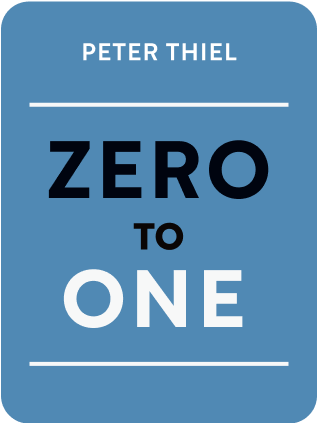

This article is an excerpt from the Shortform summary of "Zero To One" by Peter Thiel. Shortform has the world's best summaries of books you should be reading.
Like this article? Sign up for a free trial here .
What are complex sales, and do you need them to be a part of your startup sales strategy?
Complex sales are B2B sales that often include high level executives, like the CEO. Many companies never use the complex sale, and some rely only on complex sales. Whether you use complex sales depends on your company and product—read more about them below.
If You Build It, You Still Have to Sell It: Using Complex Sales
Many Silicon Valley entrepreneurs underestimate the importance of distribution, which encompasses whatever it takes to sell your product (advertising, sales, marketing, and distribution channels). But understanding distribution and having a plan for it is critical to a company’s success—it should be part of designing your product.
We often overlook the importance of distribution because society in general looks down on salespeople and advertising as dishonest and manipulative. Silicon Valley entrepreneurs take this a step further—because of a bias toward building rather than selling, they often believe their product is so superior it should sell itself: if they build it, customers will come.
But customers won’t buy your product automatically; you have to sell it, which is more challenging than many entrepreneurs and engineers realize. One of these ways to sell is mastering the complex sale.
Silicon Valley “nerds” should care about advertising because it works—or it wouldn’t be a $150 billion industry that employs more than 600,000 people. If you have a niche product, mastering the complex sale might be something to consider.
But sales works differently than many people think. They think they’re not influenced by pitches because they don’t run out and buy the advertised items. But advertising’s intent isn’t to get you to buy a product right away, it’s to leave an impression with you that will drive sales later.
The sales process is often subtle—selling is a hidden art that secretly drives the economy.
All salespeople are actors; like actors, their priority is persuasion, not transparency. We react negatively to inept salespeople (“used-car salesman” is a slur), but the best salespeople are masters who sell without our realizing it.
For example, Mark Twain’s character Tom Sawyer persuaded his friends to whitewash a fence for him. That took talent, but his masterstroke was convincing them to pay him for the privilege of doing so. They never caught on.
Sales still works best when hidden. Sales is never mentioned in anyone’s job title—for instance,
advertising salespeople are “account executives;” fundraisers trying to sell you on a cause work in “development,” and those who sell companies are “investment bankers.” Yet sales ability in each position separates superstars from average performers.
While engineers like to assert that a great product will sell itself, there’s another business maxim that the best product doesn’t always come out on top. If you’ve created a new product but not an effective way to sell it, you have a bad business regardless of your product’s quality.
Complex Sales
Some of the most valuable tech products (like Palantir’s software) require complex sales totaling seven figures or more.
(Shortform note: a complex sale is a business-to-business sale that involves multiple stakeholders in a company, takes considerable time to negotiate and finalize, is potentially high risk for the buyer, and involves a lot of money. Read more about complex versus traditional selling in the Shortform summary of The Challenger Sale.)
The CEO, rather than a vice president of sales or a sales rep, needs to personally handle the sale and negotiation if the deal is worth $1 million to $100 million. You might only make a sale like this once a year, and you need to follow up during the installation and provide ongoing service and maintenance.
Companies engaging in complex sales need to achieve 50% to 100% year-over-year growth over 10 years in order to succeed. This will seem small for entrepreneurs envisioning exponential growth for their companies. But it takes time to build the customer relationships necessary for complex sales to succeed. A new customer won’t sign a deal far exceeding your previous deals. You’ll need a track record and customer references you can build on to achieve bigger deals. This is all part of mastering the complex sale.
Complex sales may be able to help you maximize profits. Consider whether or not complex sales are right for you and your business.

———End of Preview———
Like what you just read? Read the rest of the world's best summary of Peter Thiel's "Zero To One" at Shortform .
Here's what you'll find in our full Zero To One summary :
- Why some companies genuinely move the world forward when most don't
- How to build a company that becomes a monopoly (and why monopolies aren't bad)
- Silicon Valley secrets to selling products and building rockstar teams






